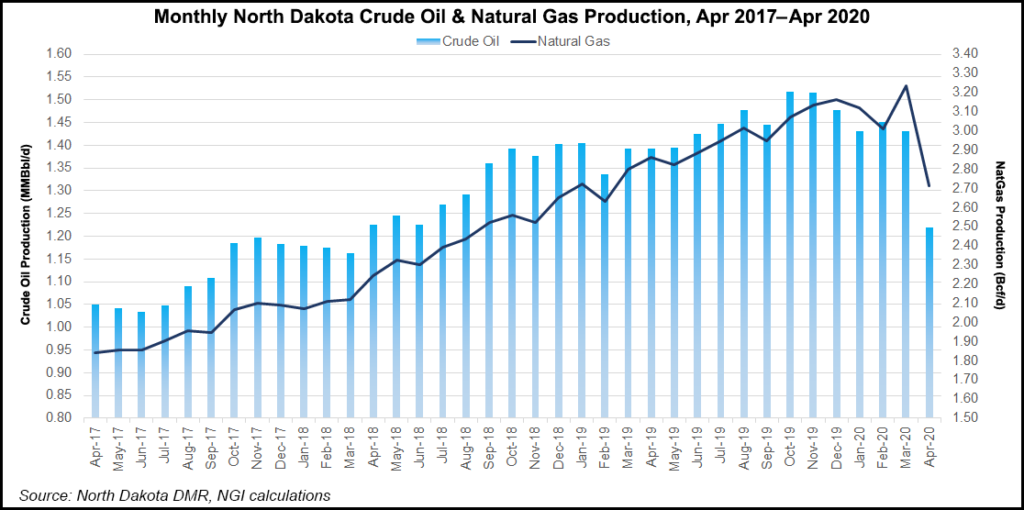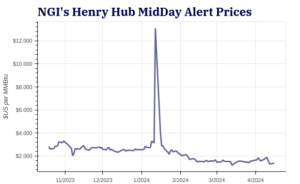E&P | NGI All News Access | NGI The Weekly Gas Market Report
North Dakota Rejects Bakken Oil, Gas Production Quotas
The three-member North Dakota Industrial Commission headed by Gov. Doug Burgum has unanimously voted not to impose oil and natural gas production cuts, citing similar moves by Texas and Oklahoma.

The commission, which also includes the state’s attorney general and agricultural commissioner, said producers were doing a good job reacting to the double whammy of the coronavirus pandemic and global energy supply/demand dynamics.
In recent months, producers in the Bakken have shut-in more than 7,000 wells, but that has begun to reverse, said North Dakota Producers Council President Ron Ness.
“Commissioners decided that producers and market conditions had sufficiently reacted on their own without any government interference,” Ness told NGI’s Shale Daily last Friday. “They basically agreed with comments from the industry saying, ‘let the market work it out.’”
Bakken operators have individual needs and contracts, so producers did not see any reason for the state to pick winners and losers, Ness said. He said operators had reacted appropriately, shutting in twells when the market was tanking and now opening back up as oil prices increase.
“Operators used their own determinations of choosing which wells and when to bring them back on,” Ness said. He estimated that roughly a third of the Bakken wells have come back online.
At the end of last year, Bakken natural gas production in North Dakota topped 3 Bcf/d in October, while oil exceeded 1.5 million b/d, setting new records.
Department of Mineral Resources (DMR) Director Lynn Helms reported a month/month oil production increase of 5% and a 4% hike over the same time for gas. Oil prices exceeded estimates by 2% in October at nearly $42/bbl for Bakken sweet crude.
State officials had predicted Bakken production was unlikely to strengthen through the first quarter. Then the pandemic crushed energy demand around the globe, and a mild downturn became a major crash.The Railroad Commission of Texas, which oversees the biggest production fields in the country, in May turned back a motion that would have required the state’s producers to reduce oil output by 20%, instead siding with the free market. Meanwhile, the Oklahoma Corporation Commission in April approved a relief measure allowing operators to shut-in production without losing their lease rights. However, Oklahoma regulators did not mandate production quotas.
© 2024 Natural Gas Intelligence. All rights reserved.
ISSN © 2577-9877 | ISSN © 1532-1266 | ISSN © 2158-8023 |


